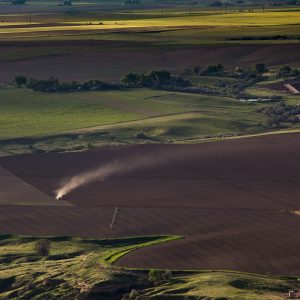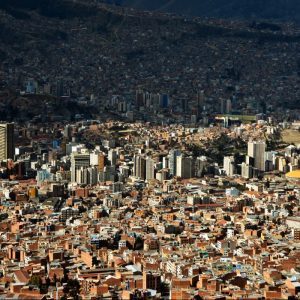The Stream, January 6: Cutting Water Supplies To Damascus Is A War Crime, UN Says
The Global Rundown
Amid water cuts in Damascus, United Nations representatives in Syria said that deliberately depriving civilians of fresh water supplies is a war crime. Population growth and economic uncertainties could exacerbate water supply problems in Saudi Arabia. Human activities are likely to blame for the declining health of waterways like Montana’s Yellowstone River, where a major fish kill occurred last summer. China announced a massive investment in renewable energy, including hydropower. A U.S. company must pay millions of dollars for a chemical spill that allegedly contaminated water supplies and sickened nearby residents. A large storm caused significant flooding in northern Germany.
“To deprive water is, of course, a war crime since it is civilians who are affected.” –Jan Egeland, the United Nations’ humanitarian advisor for Syria, commenting on the disruption of water supplies to more than 5.5 million people in Damascus. Authorities do not yet know which side in the conflict is responsible for the water cuts, but believe they are deliberate. (Guardian)
By The Numbers
$361 billion Amount China plans to invest in renewable energy by 2020 — including hydropower, nuclear, solar, and wind — with the goal of producing half of new electricity generation from renewables. Reuters
2 meters Depth that water levels rose in some areas of northern Germany after Storm Axel brought heavy rains and floods this week. Reuters
$10.5 million Punitive damages a U.S. jury ordered the DuPont company to pay in response to a lawsuit over a chemical leak from one of its plants. The leak from the plant, located in West Virginia, allegedly contaminated water supplies. Reuters
Science, Studies, And Reports
A massive fish kill in the Yellowstone River last summer may be linked to a decline in the river’s overall resilience, according to researchers at the University of Montana. Human activities, they say, including water diversions and flood control measures, weaken the river’s “immune system” and make it more vulnerable to parasites like those that caused the fish kill. Yale Environment 360
On The Radar
Natural water scarcity coupled with rapid population growth threaten to curb Saudi Arabia’s development plans, according to a report by Stratfor. Increased pressure on water supplies comes at the same time the kingdom is struggling to adjust its economy to accommodate sweeping changes in global energy markets. Stratfor
A news correspondent for Circle of Blue based out of Hawaii. She writes The Stream, Circle of Blue’s daily digest of international water news trends. Her interests include food security, ecology and the Great Lakes.
Contact Codi Kozacek





